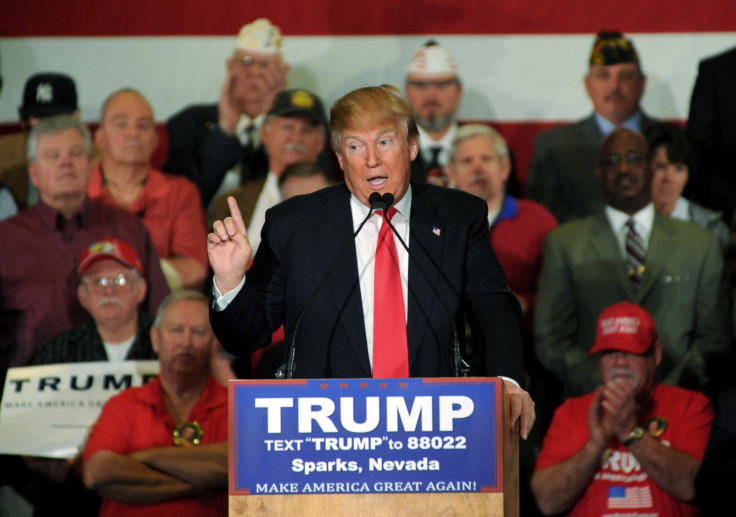Nevada Republican Caucuses: Watch Live Stream Of Donald Trump Speech

Nevada Republican caucus-goers sent a strong message Tuesday night: they wanted to Make America Great Again and they believed Donald Trump was the candidate to do it. As results came in from the Nevada GOP caucuses, it looked like the New York billlionaire would decisively win the “first in the west” nominating contest. It was his third win in a row after losing the Iowa caucus to Texas Sen. Ted Cruz.
Trump was widely expected to do well in the Silver State, as he has dominated polls and buzz in the state for weeks, coming off wins in South Carolina and New Hampshire.
Caucus sites opened between 5 and 7 p.m. PST Tuesday, with all sites closing by 9 p.m. PST or midnight EST. The late caucus times and the often chaotic nature of the Nevada Republican caucuses meant that results were not finalized until early Wednesday.
Trump was expected to speak late Tuesday night, and his speech can be viewed below when it airs.
ABC Breaking NewsNevada has historically been difficult to poll because of its transient population and the small participation rate in caucuses, but Trump was been at the top of the few polls that have been conducted over the past year. The latest poll, conducted by Gravis Marketing from Feb. 14-15, had Trump at 39 percent, leading the rest of the field by double digits. A CNN/ORC poll last week had him with an even bigger lead at 45 percent support.
Texas Sen. Ted Cruz and Florida Sen. Marco Rubio were expected to battle it out for second place in Nevada. Rubio narrowly beat Cruz for that position in South Carolina, and their two campaigns have made it clear they felt Nevada was one of their last chances to really stop Trump’s momentum.
After the first three states, Trump had 67 delegates, Cruz had 11, Rubio had 10, Ohio Gov. John Kasich had five and Ben Carson had three. Republicans need 1,237 delegates to win the party’s nomination. As the primaries go on, delegate are handed out on a winner-take-all basis, which could put Trump out of reach in just a few weeks, if his winning ways continue.
The state Republican Party said early Tuesday evening more people had pre-registered for the GOP caucuses than participated in 2012, The Hill reported. A whopping 37,000 Republicans pre-registered, the party said, while just 33,000 people — or 8 percent of registered Republican voters — caucused in Nevada last time around.
BREAKING: Huge news for NV caucus. GOP official confirms that 37,000 have pre-registered. That's bigger than overall turnout in 2012!
— Jon Ralston (@RalstonReports) February 23, 2016
Trump has based much of his campaign on appealing to nontraditional voters and those who have been uninvolved in politics in the past. That has tended to mean that high turnout rates are good for The Donald, but New Hampshire and South Carolina also showed that he has a weakness among late-deciding voters. Those who said they made up their minds shortly before voting in the previous primaries largely supported Cruz and Rubio, so the makeup of the surge in participation in Nevada was expected to help decide how the race shook out.
Another area that was expected to be an important test for Trump on Tuesday was his support among Latino voters. Nevada has a much more diverse electorate than Iowa or New Hampshire, and if Trump did well among nonwhite caucus-goers in the crucial fourth nominating contest — particularly against two Hispanic rivals — it could signal that he will be hard to beat going forward.
After Nevada, the Republicans will head to the debate stage Thursday before competing in the 12 states that vote in Super Tuesday March 1. Barring a complete surprise upset Tuesday night, Trump is expected to capitalize on any support he gets from Nevada and move on to pick up a large sum of delegates early next month.
© Copyright IBTimes 2024. All rights reserved.





















